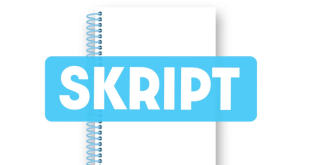The modern world is evolving rapidly. Every day, we face new challenges—technological advancements, environmental crises, and complex health issues. To navigate this landscape, we need problem-solvers, innovators, and thinkers. This is where the Bachelor of Science (BSC) steps in. The full form of BSC, as many already know, is Bachelor of Science. But the degree is more than just its name. It’s a powerful stepping stone that equips students to tackle today’s complex issues head-on.
Let’s think of it like this. Imagine you’re assembling a survival kit for a fast-changing world. The Bachelor of Science fills that kit with essential tools: analytical skills, scientific reasoning, and practical experience. These tools aren’t just helpful—they’re indispensable. They prepare students not just to survive but to thrive in careers ranging from data science to environmental management and even healthcare.
Why is the Bachelor of Science Relevant Today?
Take a moment to reflect on how intertwined science is with our lives. Your smartphone? Built using algorithms and physics principles. Medicine? A product of rigorous biological research. Clean drinking water? A feat of chemistry and environmental science. A Bachelor of Science program dives deep into these areas, enabling students to make meaningful contributions in their chosen fields.
What sets a BSC apart from other undergraduate programs is its focus on adaptability. The world isn’t static; neither is this degree. The coursework is designed to keep up with new challenges. For instance, in computer science, students learn programming languages that are relevant today but are also taught the logic that underpins all coding. This way, they’re not just learning skills—they’re learning how to learn.
And this flexibility pays off. Employers today aren’t just looking for graduates who know facts. They want critical thinkers. People who can approach a problem, analyze it from all angles, and come up with innovative solutions. The full form of BSC, in many ways, reflects this: a balanced foundation of knowledge and application.
What Does a BSC Actually Teach You?
A Bachelor of Science isn’t a one-size-fits-all program. It molds itself to your interests. Love numbers? You could major in mathematics or statistics. Fascinated by life sciences? Go for biology or biotechnology. Obsessed with technology? A BSC in computer science might be your calling.
But while specializations vary, the underlying principles are consistent. Students learn to think critically, solve problems systematically, and back up their ideas with data. It’s not about memorizing facts for exams. It’s about understanding concepts so deeply that you can use them in unexpected situations.
Let’s break it down. A typical BSC program combines theoretical knowledge with practical application. You’ll spend time in labs, conducting experiments, and learning from your failures. Labs are like mini-training grounds for the real world. For example, chemistry students might study water purification processes, linking what they learn to global water scarcity issues. Biology students might analyze genetic patterns, connecting their studies to healthcare solutions. This combination of theory and hands-on learning ensures students don’t just “know” science—they can do science.
How Does a BSC Prepare You for Real-World Problems?
Here’s the thing about real-world problems: they’re messy. There’s rarely a single solution, and you often need to look at them from multiple perspectives. A Bachelor of Science teaches you how to do that.
Take climate change as an example. It’s not just an environmental issue—it’s also economic, political, and technological. A BSC graduate might approach this from different angles. An environmental scientist might study deforestation patterns. A data analyst might track carbon emissions using AI tools. A physicist might work on renewable energy solutions. The point is, a BSC gives you the skills to contribute, no matter your specialization.
Another modern challenge is the rise of artificial intelligence. BSC programs in computer science are at the forefront of this revolution. Graduates are equipped to develop ethical algorithms, build smarter machines, and ensure that AI serves humanity in positive ways. The full form of BSC—Bachelor of Science—is a reminder that science isn’t just theoretical. It’s a force for real-world change.
Who Benefits Most From a BSC?
The simple answer? Anyone curious, driven, and ready to solve problems. Whether you dream of curing diseases, designing cutting-edge technology, or understanding the mysteries of the universe, a BSC can help you get there.
But let’s not ignore a key factor: employability. A Bachelor of Science opens doors. Many industries actively seek BSC graduates because of their unique combination of knowledge and practical skills. Fields like healthcare, IT, environmental science, and finance are just a few examples. And the best part? The degree is globally recognized. Whether you study in India, the US, or Australia, your BSC holds value worldwide.
For those aiming for advanced degrees, a BSC is also a great starting point. Many students use it as a foundation for further studies, like an MSc or Ph.D. Think of it as the first chapter in a much bigger story.
A Day in the Life of a BSC Student
Life as a BSC student is anything but monotonous. Picture this: You start your morning with a lecture on quantum mechanics, grappling with the nature of particles and waves. By noon, you’re in the lab, experimenting with optics to see those theories in action. The afternoon? A group project analyzing climate data trends. By evening, you’re attending a seminar on the ethics of genetic engineering.
What’s unique is the balance. You’re constantly switching between learning concepts and applying them. This dynamic environment keeps students engaged and prepared for the multitasking demands of the modern workplace.
FAQs: How the Bachelor of Science Prepares for Modern-Day Challenges
Q: What is the full form of BSC?
A: The full form of BSC is Bachelor of Science, a degree that focuses on building scientific knowledge and practical skills.
Q: How does a BSC help in career preparation?
A: A BSC equips students with critical thinking, problem-solving, and specialized knowledge that are essential for industries like IT, healthcare, and environmental science.
Q: Can I pursue a BSC if I’m not sure about my career path?
A: Absolutely! The diverse specializations and skills taught in a BSC program make it a versatile degree, opening doors to multiple career options.
Q: Is the Bachelor of Science globally recognized?
A: Yes, a BSC is widely recognized across the globe, making it valuable for those seeking international career opportunities.
Q: How does a BSC address real-world challenges?
A: By teaching students both theory and practical application, a BSC enables them to tackle modern issues like climate change, AI, and healthcare advancements.
In summary, the Bachelor of Science is more than just an academic program. It’s a passport to the modern world. Whether you’re solving real-world problems, advancing technology, or contributing to scientific discovery, a BSC prepares you for it all. So, if you’re someone who loves challenges and wants to make a difference, this degree might just be the perfect fit.







